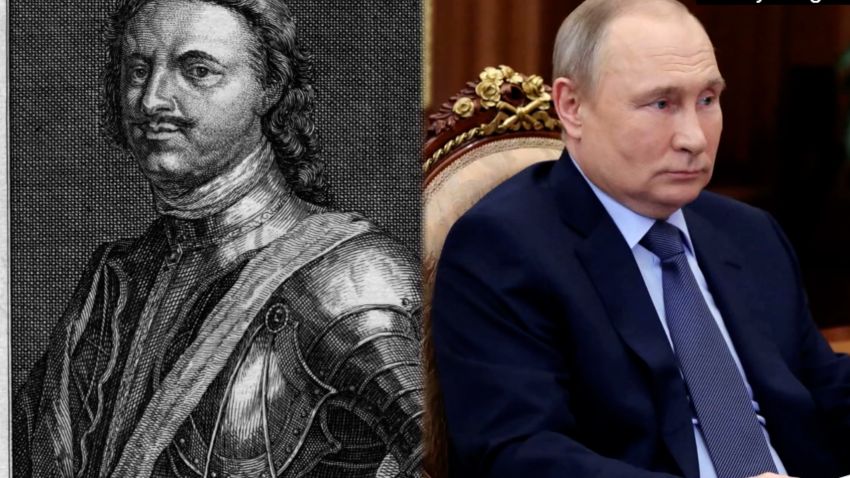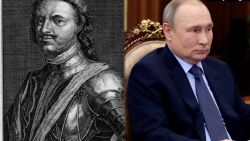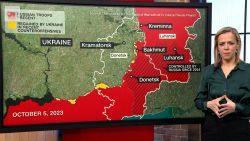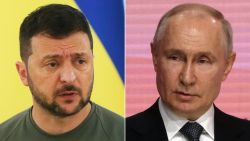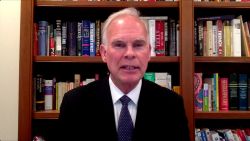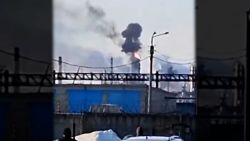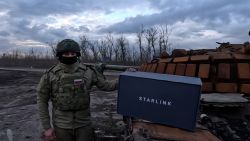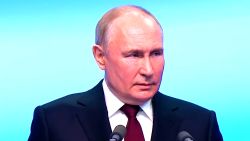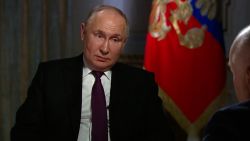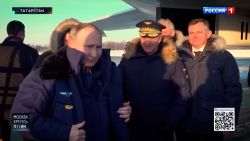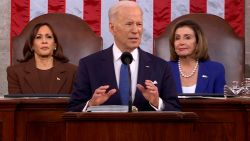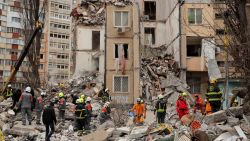Editor’s Note: Daniel Treisman is a professor of political science at UCLA, a fellow at the Center for Advanced Research in the Behavioral Sciences at Stanford, and the co-author of “Spin Dictators: The Changing Face of Tyranny in the 21st Century.” The opinions expressed in this commentary are his own. View more opinion at CNN.
As President Joe Biden meets European leaders this week at G7 and NATO summits, all will be trying hard to project an image of unity. They will have their work cut out for them.

Back in February, the West impressed the world with its resolute rally behind Ukraine in the face of Russia’s brutal aggression. From Washington to Warsaw, leaders from across the political spectrum seemed to be singing in rare harmony.
Four months later, what’s striking is how quickly divisions have resurfaced – both among countries and within them.
Biden’s task in the next week will be to revive the spirit of February. If allowed to fester, emerging disagreements could undercut the effort to support Ukraine while feeding Russian President Vladimir Putin’s sense that time is on his side.
From Moscow, the West today looks distracted and divided. While voices from front line Eastern European states like Poland and Estonia warn of the risks of appeasing Putin, some of their peers further West seem to worry more that the Russian leader will feel humiliated.
One adviser to German Chancellor Olaf Scholz recently shocked his own coalition partners by scolding journalists for harping on about Ukraine’s military needs, rather than exploring the “exciting” question of future relations with Russia. Scholz seemed in February to be leading a revolution in German foreign policy, ditching Ostpolitik to boost defense spending and arm Kyiv. Now, even supporters wonder why so little heavy weaponry has actually been delivered.
In France, President Emmanuel Macron has been hobbled by the loss of his parliamentary majority. The recent election saw a surge for both the left-wing alliance of Jean-Luc Mélenchon and the anti-immigrant right of Marine le Pen. Both have in the past defended Putin’s armed annexation of Crimea. These days, both criticize Russia’s invasion but oppose embargoing the country’s oil and gas exports.
The UK’s Prime Minister, Boris Johnson, has backed Kyiv strongly. But his country, still digesting Brexit, has been rocked by scandals over Johnson’s flouting of his own lockdown rules and alleged lies to Parliament. Johnson has repeatedly denied rules were broken.
Meanwhile, Finland and Sweden’s bid to join NATO has been hijacked by Turkey’s President, Recep Tayyip Erdogan, who seems determined to use the new Russian threat to extract concessions. Among other things, he wants the two Nordic countries to set aside human rights concerns and extradite Turkish oppositionists and journalists to Ankara.
To Biden himself, a few days out of Washington must seem like a welcome relief. With his dismal ratings, his party faces a rout at the midterms in November and he could wind up in a rematch with Donald Trump in 2024.
As inflation surges, Covid-19 mutates and economies teeter on the edge of recession, Western leaders hardly look up to the task of defending the free world.
This picture of divisions and disarray is all the more worrying as Putin is almost certainly reading too much into it.
Like his friend, Chinese President Xi Jinping, the Russian leader has believed for years that the West is in decline, dysfunctional, and self-obsessed. Domestic political fights, electoral upsets and quarrels among allies all strike such autocrats as signs of weakness.
In their view, strength lies in unity. Both Putin and Xi work hard to manufacture it at home. In Russia, the only divisions on display are between those who support the war and those who really support it. In China, censors are crushing any hint of dissent in the runup to this fall’s party congress, at which Xi is expected to claim a historic third term – potentially opening the door to many more.
What such leaders do not realize is that democracy’s strength lies in its ability to process disagreements rather than sweep them under the carpet. Attempts to impose unity by fiat create a fragile simulacrum of order. They also blind the leader to the true state of public opinion.
Messy as democracy and multilateral diplomacy can be, airing differences is often necessary to overcome them. Solving problems requires open sharing of information and the evaluation of options. The fear of division leads autocrats to cling to failed approaches, as with Xi’s Draconian lockdowns and Putin’s bullying of his neighbors, which seems now to have alienated even Kazakhstan’s usually tight-lipped president.
To succeed, countries need to forge unity rather than fake it. But that doesn’t happen automatically. And it takes time. If the characteristic weakness of dictatorships is the tendency of leaders to lose touch with reality, the corresponding defect of democracies is that they take too long to rouse.
When they act, democracies can mobilize far greater energy and innovation than their foes. But they often begin so late that costs have already risen to unnerving levels.
That’s where leadership comes in. The top challenge for any statesman is to counteract his system’s failings. A dictator who remains informed and critical is more likely to survive. A democratic leader who inspires his people – and allies – to tackle looming problems early on deserves particular historical recognition.
Biden displayed resolve in his rapid response to Putin’s aggression. In preparing sanctions and rallying the West early on, his team showed glimmers of greatness. Now, as splits reemerge, he needs to do more of this – explaining what’s at stake, shaping opinion at home and abroad, and maintaining the coalition to keep aid flowing to Kyiv.
The danger in the next few months is that, distracted and diverted, the West will not get Ukraine the weapons it needs fast enough to defeat Russia.
If we succumb to “war fatigue,” we will pay a heavy price. Stopping an aggressor early on is always cheaper than waiting for him to accumulate victories and resources. Putin openly compares himself to Peter the Great, with a mission to “return and reinforce” territories that once fell within the Russian Empire.
We cannot let that happen. Our advantage in this contest is that we do not need to fear divisions. In the end, they are our strength. But they have to be bridged by able and energetic leadership. That’s what democracies – and their great statesmen – do. E pluribus unum.
